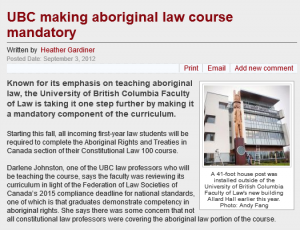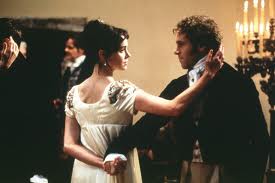In “Decolonizing the mind”, Ngugi wa Thiong’o presents a reflection about how the English language and academia built on Kenya a way of perceiving the world through the eyes of the British culture and imperialist language.
The text structure addresses different stages. After a brief introduction about the topic, the author explains his own experience remembering how in his natal place and his home, he used the Gĩkũyũ language and it works for every single aspect of his everyday life, including oral stories that identify him with his community. Later, the appearance of the colonial language, the English, transforms his life completely since in the school he has to learn a new code, a new structure and a new culture since the books that the British brings are those that represent the European values. The reflection take him to analyze the importance of the language for building the culture and how the language is culture itself for three reasons: 1) the culture is product and reflection of human beings communicating with each other; 2) language as culture is as an image-forming agent in the mind of the child; 3) culture transmits those images of the world and reality through the written and spoken language (1134). In that order of ideas, when the English language is imposed in Africa, the African culture is submitted to the English culture.
Thiong’o notices that this process is more clear in the writing language, where the child can not express his or herself in an emotional way, but the writing becomes a “cerebral activity” (1135), since the school language is not related with the language of home.
The article turns to question aloud what to do to decolonize the mind of children that have received or are receiving classes about European literature and not African in English language. The conclusion is a “quest for relevance”, process in which Thiong’o wants “to look for at it far as relates, not to just the writing of literature, but to teaching of that literature [African literature] in schools and universities and to the critical approaches” (1138). So he summarize discussions about how to propose the African literature as centre and not periphery of the literary education, and how this literature should nurture from the others literatures. He even mentions that Indian, Caribbean and Latin American literature should be add to the academic programs since they share a lot of things in common.
Thiong’o extract make me think about how the education I received also perpetuated colonial ideas. For instance, when I study my B.A. in Literature in Universidad Nacional, many of the professors who taught me had obtained their Masters and PhD in French universities. For that reason their classes cover a lot of European literature but, over all, French literature. For instance, the Literary Theories that I took were specific studies about one or two authors, some of them were Barthes, Lukács, Goldman, Saussure, Ubersfeld, Bourdieu, Gennete, a little of Benjamin, who is not French but German (but we read his text about Baudelaire) and Bahtin. Actually, I did not receive much information about North American or British theorists (perhaps Raymond Williams and Northrop Frye), but almost nothing about Latin American approaches. Literature classes were about Colombian, Latin America and Spain; but we also had these group of classes called “Universal Literature”, and this classes were about important authors of the world in different historic moments but we did not read Li-po, Chinua Achebe or Tagore, we read Dante, Bocaccio, Flaubert, Dostojevski, Kafka, Ionesco… European authors. I think is important to recognize when my professors studied their B.A., during the 1970’s and 1980’s, many of them studied in the very same Universidad Nacional, a public university deeply politicized to the left, so the United States were seen like the epitome of the “yankee imperialism”, and not many students look for North American universities to complete their graduate education. I do not know about Canada, but probably it was not seen with good eyes. So the majority of students, who later would be professors in this university, saw Europe, but over all France, as the possible place where they can improve their knowledge.
Anyway, the theoretical perspectives I received from my professors were, in its majority, the French perspectives. I can not say these perspectives are not interesting or not useful to analyze or criticize literary texts, but after reading Thiong’o I think I would like to have learned not only North American. African, Asian approaches, but, more important, Latin American theoretical approaches for analyzing Colombian and Latin American literature. I do not know how is the Literature program currently, I supposed it have changed since there are new professors, new times, new reflections, and a new relationship with the North American academia, since many students, including me, have come to US or Canada for obtaining post graduate titles (the brain drain that perhaps is a new form of colonialism in the academy, but this is other topic).
So far I do not know much about Latin American literary theories, I think is one of my task as student to get to know them. Actually, one of the my conclusions of these postcolonial readings is that is really important for me to know some of them. Just checking online, I found the “Grupo Latinoamericano de estudios Subalternos”, headed by Walter Mignolo, inter alia, and the “Grupo modernidad/colonialidad” headed by Anibal Quijano and also by Mignolo, authors or theories that we will not be able to read or analyze in the course, since we have not enough time of it, but I am really eager to read.
Perhaps, under the light of these postcolonial readings and thoughts, in the future this Introduction to Literary Theory course could include Latin American theoretical approaches. I know time is short but maybe if they are included would help to some students from Hispanic or French Graduate studies to think about their projects. Maybe?






